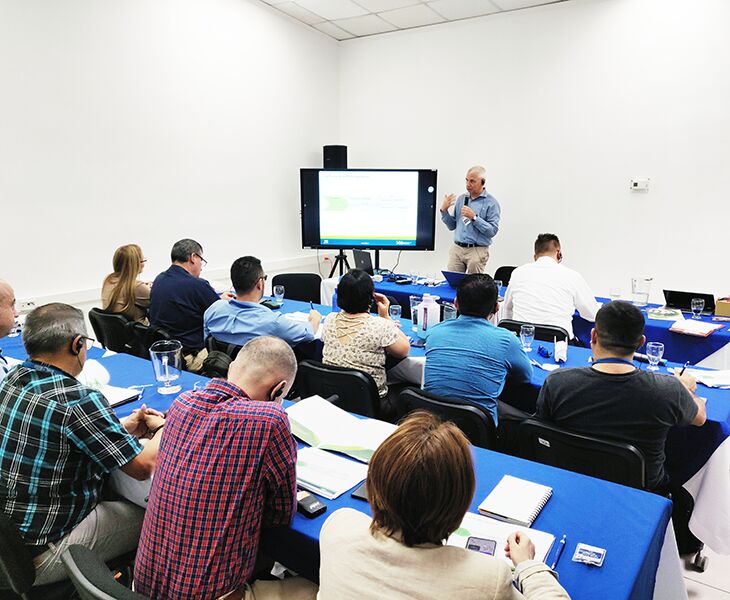Standards make vocational education and training
02.01.2024
From the occupational description to the training plan – BIBB/GOVET delivered two workshops in Costa Rica with participants from the country’s Ministry of Education and National Learning Institute on the development and implementation of training regulations in the Costa-Rican training system.

Training regulations form the legal and technical framework for modern and high-quality VET. But what if this framework does not fit schools and companies and there is an absence of experiences of practicable cooperation between learning venues? Or if the needs of industry are different to those described in the training regulations? And how can good training regulations improve VET?
Experts from the Costa-Rican Ministry of Education (Ministerio de Educación Pública, MEP) and from the National Learning Institute (Instituto Nacional de Aprendizaje, INA) joined Dr. Gert Zinke and Julia Olesen from BIBB to address these questions and other issues relating to the specific development of training regulations. Dr. Gert Zinke used the electrical engineering occupations to illustrate the development of learning fields, competencies and occupational profiles. The discussions with both organisations initially centred on questions of process. One particular point of focus was on who provides the impetus for new training regulations. The workshop was supported by Oliver Herrlen, one of the experts funded by the Inter-American Development Bank, who contributed ideas on the practical implementation of dual training programmes.

The state education system in Costa Rica had tended to be supply-oriented in the past. Integration of the private sector had not thus far been equally successful in all economic sectors. The workshop, in which company representatives were also participating, thus offered an opportunity for networking between the Costa-Rican attendees. The consensus reached was that the involvement of the social partners and of experts from the field of practice is indispensable to the drawing up and implementation of modern high-quality training regulations. A further object of debate was the extent of innovations and specific technologies that can be integrated into training or not. Dr. Gert Zinke explained the approach adopted by BIBB, which seeks wherever possible to obtain a balance of large and small companies and regional distribution in the meetings with experts on the development or modernisation of training regulations. This enables a training standard to be covered by various companies.
The discussions were conducted on the basis of training regulations for the electrical engineering occupations in Costa Rica and the German regulatory instruments for the occupation of mechatronics fitter. Company-based training plans in particular had previously been formulated in very detailed terms in Costa Rica. By way of contrast, the focus in Germany was on describing larger thematic blocks and competency fields, always with the objectives of covering the required employability skills and of passing responsibility for further operationalisation to the teachers. Participants debated the benefits and drawbacks of generalist and specific occupational profiles with the BIBB team of experts. Dr. Gert Zinke also shared and discussed his experience criteria for the definition of a training occupation and the underlying competencies with the groups. One further point to which participants wish to accord greater consideration in future is technologically neutral wording of the training regulations. This means that no restrictions will be placed on companies in respect of technology or machines deployed. This will also ultimately increase the flexibility of company-based training. The exchanges that took place between the participants made it clear that enhanced flexibility in dual training is urgently necessary. In the past, some companies have reported difficulties in executing the detailed training plans. The workshop participants discussed their own self-perception and their roles in the VET system on the basis of work orders.
The five days of the workshop produced enough material for discussion to allow substantiated specialist exchange and plenty of inspiration for the participants.
Background
Since 2016, GOVET has been working on behalf of the Federal Ministry of Education and Research to advise its Costa-Rican partners on the introduction of dual vocational education and training. Costa Rica introduced its first dual programmes in 2022.